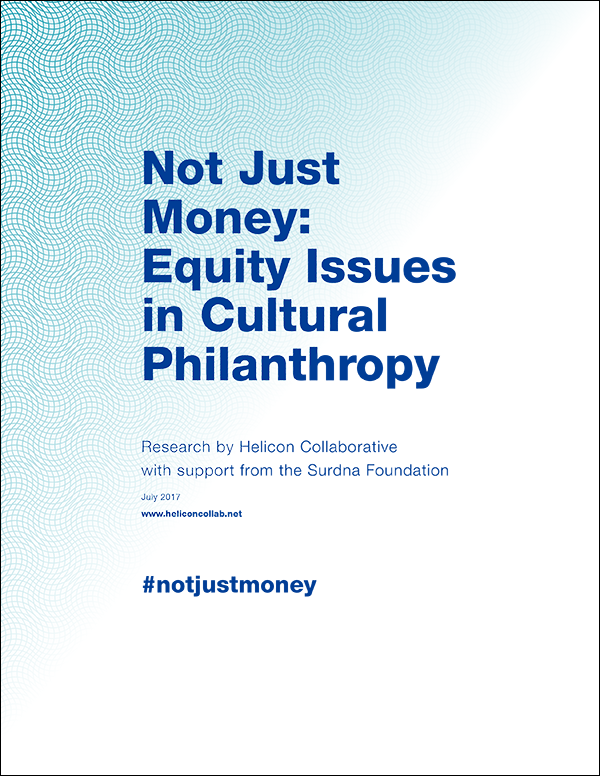Philanthropic practice
During the past two decades, cultural planning practice in the United States has fallen behind that in parts of the world where cultural plans are required in city general plans, broader definitions of culture have been adopted, more domains of city planning have been integrated, and theoretical debate has progressed further. In the United States there is neither a field of cultural planning nor of cultural planners.
Read More...“Is the stadium we passed going up or coming down?” asked Kristen Calhoun, ArtChangeUS founding program director. Suddenly the previously strained community meeting we were attending came alive. Kristen and I were in Detroit in July 2016 to plan ArtChangeUS REMAP: Detroit, and we had repeatedly driven by the mass of steel girders, not knowing if it represented Detroit’s past or future. Artist and activist Invincible ill Weaver had organized a series of gatherings for us to meet with grassroots cultural change makers.
Read More...At the end of this year, Janet Brown will step down as president and CEO of Grantmakers in the Arts. She has led GIA for nine years, and under her leadership, membership in the organization has grown 34 percent, and its budget has nearly doubled. GIA’s influence has grown enormously in the field, and the organization has greatly expanded its programs, introducing webinars, research workshops, and forums on a wide variety of issues, including arts education, capitalization, cross-sector collaborations, racial equity, and support for individual artists.
Read More...July 2017, 37 pages. Surdna Foundation, 330 Madison Avenue, 30th Floor, New York, NY 10017. (212) 557-0010. http://surdna.org.
Download:
Read More...For more than a decade, members of GIA have urged the Grantmakers for Education membership to better recognize the positive impact arts education classes and programs afford to good teaching, good learning, and an overall well-rounded education for students. Arts education advocates hoped to see more sessions at Grantmakers for Education conferences highlighting the value of arts education and more collaboration between arts education funders and education funders.
Read More...In many ways, it has been a heartening year for champions of the literary arts.
Read More...Two years ago, I had breakfast with a colleague — very nice guy who has helped build the social, or “impact,” investing sector. I shared my ideas about how to connect impact investing with the arts.
To him, investing in the arts meant buying a Picasso or a Van Gogh, collecting art objects. He agreed there was a market for fine art. But impact investing in the arts? He was dead against it.
Read More...As our country prepares for a Trump presidency, the issue of economic revitalization in rural American has much more urgency than eight months ago when I started collecting data for this work. Here is a sampling of headlines from coverage by the New York Times of the economic decline in the rust belt, or more specifically, coal country and Appalachian towns: “Trump’s Promises Will Be Hard to Keep, but Coal Country Has Faith” (Nov. 28, 2016); “A Bleak Outlook for Trump’s Promises to Coal Miners” (Nov.
Read More...What can you do when times are uncertain, and yet a clear opportunity to advance a collective agenda presents itself? Take action.
Read More...The League of American Orchestras’ upcoming national conference in Detroit falls just days before the fiftieth anniversary of the 1967 Detroit uprising, the largest urban disruption in America since the Civil War. According to Detroit Symphony Orchestra (DSO) president Anne Parsons, the 1967 riot was the context for the orchestra’s fellowship program for African American musicians.
Read More...
